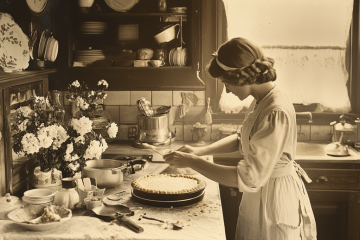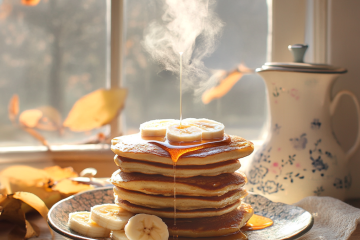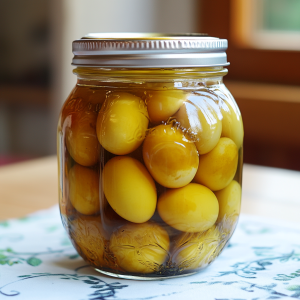
Pickled Eggs
The Humble Pickled Egg…
If you’ve ever walked past those large jars of pickled eggs at your local pub with a mixture of curiosity and skepticism, you’re looking at a piece of food preservation history that’s as practical today as it was in Victorian England. These protein-packed pearls aren’t just bar snacks – they’re one of the most overlooked and valuable additions to your preparedness pantry. And here’s a surprising fact that might ease your mind: the CDC doesn’t have a single recorded case of food poisoning from pickled eggs in decades. Zero. Nada. That’s quite a safety record for something that can sit on a pub counter all day!
History of the Pickled Egg
Speaking of pubs, there’s a fascinating story behind why these vinegary delights became bar staples in the first place. Back in Victorian England, pub owners faced a clever challenge: they needed to serve food to meet licensing requirements and keep patrons drinking (because a full stomach means you can drink more), but most pubs didn’t have kitchens. The pickled egg provided the perfect solution – shelf-stable, ready-to-eat protein that required no refrigeration, no preparation, and no dedicated food staff. Plus, the salt content made patrons thirstier, leading to increased beer sales. Talk about egg-cellent marketing! This tradition followed British and Irish immigrants to American shores, where factory workers would often stop at the local pub after their shift for a cheap, reliable source of protein with their pint.
Pickled Egg Nutrition
But enough about history – let’s talk nutrition, because these tangy orbs are protein-rich workhorse. One pickled egg provides about 6-7 grams of high-quality protein, all essential amino acids, and only around 70 calories. They’re also rich in vitamins B12 and D, selenium, and choline. Plus, the pickling process actually helps preserve these nutrients while adding beneficial probiotics to the mix. In other words, you’re getting all the goodness of a regular egg with a shelf-stable bonus round of beneficial bacteria.
Now, if you’ve never tried a pickled egg, you might be imagining something akin to a rubber ball with a vinegar kick. But let me tell you – a properly pickled egg is a flavor revelation. The white develops a tender, toothsome texture that’s nothing like the rubbery mess you might be imagining, while the yolk remains creamy and rich. The vinegar brine can be customized with your favorite spices, from classic dill and garlic to more adventurous combinations like jalapeno and turmeric or beet and black peppercorn.
Ready to make your own? It’s surprisingly simple, and you’ll wonder why you haven’t been doing this all along. Here’s your foolproof guide to perfect pickled eggs:
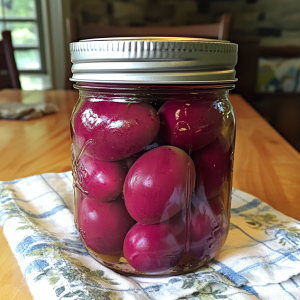
Pickled Beet Eggs
Pickled Egg Recipe
Start with a dozen fresh eggs, hard-boiled and peeled. Pro tip: slightly older eggs peel more easily than fresh ones, so buy them a week before you plan to pickle. Bring two cups of white vinegar, two cups of water, two tablespoons of salt, and your chosen spices to a boil. Speaking of spices, let’s start with a classic combination: 2 cloves of garlic, 1 tablespoon of pickling spices, 2 bay leaves, and 1 teaspoon of whole black peppercorns. Let this mixture cool completely – patience is key here, folks.
Pack your peeled eggs into clean quart jars (you’ll need two), add your cooled brine until the eggs are completely covered, and secure the lids tightly. Now comes the hard part: waiting. Store your jars in the refrigerator and resist the urge to sample for at least two weeks. This waiting period allows the flavors to develop and the eggs to achieve that perfect texture. Properly stored, these beauties will keep in the refrigerator for 3-4 months, though they rarely last that long once people discover how tasty they are.
Want to get fancy? Try these variations that have become fan favorites in our community: Beet-pickled eggs (add a cup of beet juice to your brine for a stunning purple color and earthy flavor), curry-spiced eggs (add 2 tablespoons of curry powder to your basic brine), or hot and spicy eggs (add sliced jalapenos and red pepper flakes to taste). Modern craft breweries have even begun experimenting with beer-pickled eggs and exotic spice combinations to complement their craft brews – proving that this centuries-old preservation method continues to evolve.
A note about vinegar: For safe preservation, always use a commercial vinegar with at least 5% acidity. While apple cider vinegar or wine vinegar can add interesting flavors, white vinegar is the most reliable for consistent preservation results. Whatever you do, never dilute the vinegar beyond our recommended ratios – that acidity is your preservation insurance policy and the key to indefinite shelf life!
How Long Are Pickled Eggs Shelf-Stable?
But here’s where pickled eggs really shine in your preparedness strategy: they’re shelf-stable (when properly prepared), nutritionally dense, and can be made with minimal equipment. Just as they solved the problem of feeding hungry workers in pubs without kitchens, they can provide reliable protein in situations where refrigeration isn’t available. Plus, they make fantastic protein-rich snacks that don’t require any additional preparation – just pop open a jar and you’re good to go.
Let’s talk about preservation and shelf-life, because vinegar has been humanity’s faithful food preservation companion since ancient times. The Babylonians were using vinegar for preserving food as far back as 5,000 years ago, and there’s a good reason this method has stood the test of time. Vinegar creates an acidic environment where most harmful bacteria simply can’t survive, making it one of the most reliable preservation methods in human history. From the ancient Romans preserving their vegetables to Medieval Europeans keeping their meats and fruits edible for months or years, vinegar has proven itself time and time again.
When it comes to pickled eggs specifically, proper preparation and storage are key to long-term preservation. Properly prepared pickled eggs with the correct vinegar solution (at least 5% acidity) can last indefinitely when properly sealed and stored in a cool, dark place. This indefinite shelf-life is one reason why pickled eggs are such a valuable addition to your preparedness pantry. Like many properly pickled foods, the high-acid environment created by the vinegar prevents the growth of harmful bacteria, making them one of the safest preserved foods you can make.
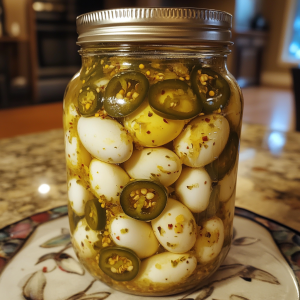
Jalapeno Pickled Eggs
For opened jars, refrigeration will help maintain optimal texture and flavor – aim to consume them within a few months once opened. But don’t confuse this recommendation with safety concerns; it’s about quality preservation rather than spoilage prevention. Those pub eggs sitting at room temperature? They’re perfectly safe thanks to the vinegar’s preservative properties, though for best flavor at home, refrigeration after opening is recommended.
Have you tried pickled eggs before? Whether it was at your local pub or from your grandmother’s pantry, I’d love to hear about your experiences or favorite recipes in the comments below. Are you a pickling novice who’s ready to give it a try? Drop me a line and let me know how your first batch turns out. And if you’re already a pickled egg enthusiast, share this article with your prepper friends who might be missing out on this perfect preservation method.
Remember, in the world of preparedness, versatility is key, and pickled eggs check all the boxes: safe, nutritious, long-lasting, and delicious. Who knew food security could be so tasty? The Victorians did, and now you do too!
